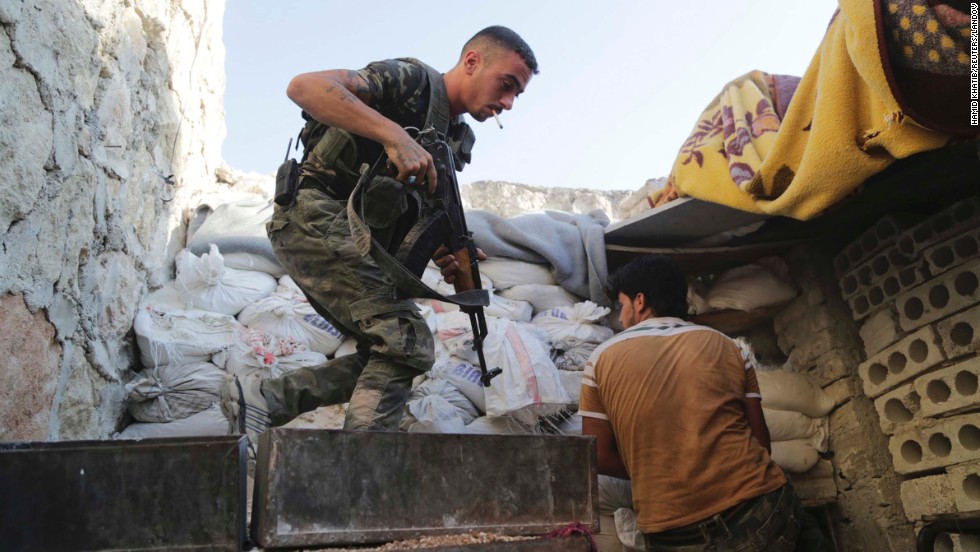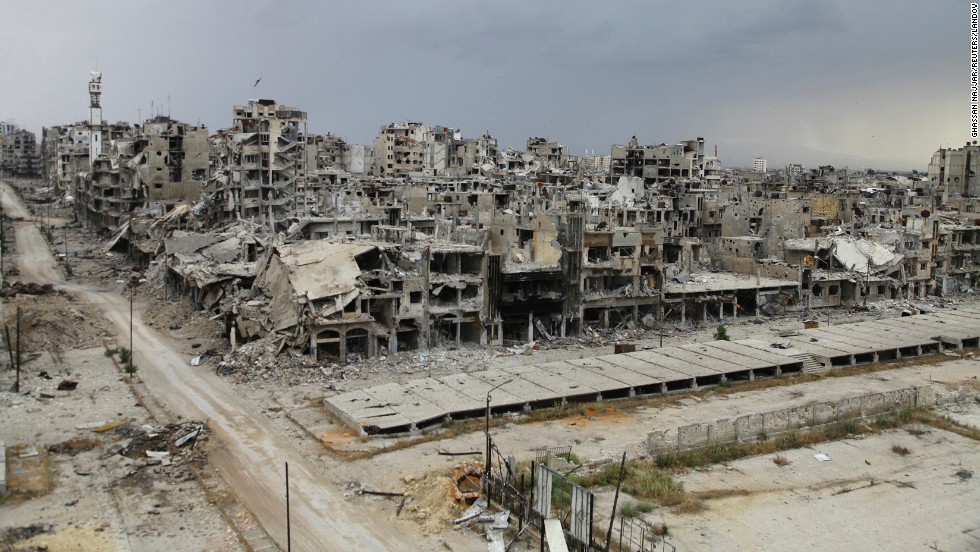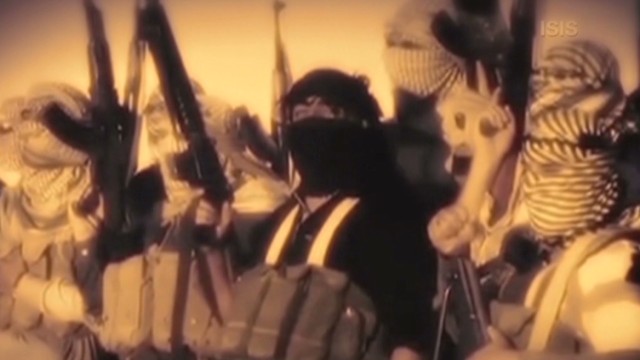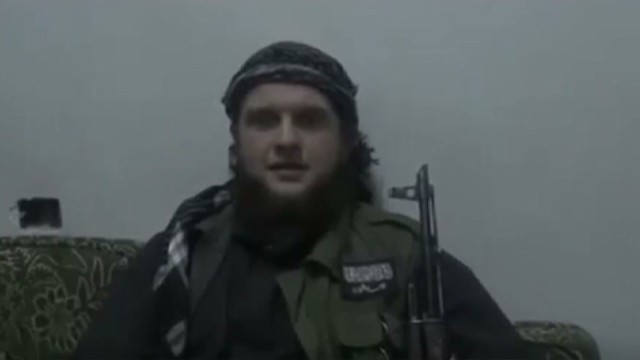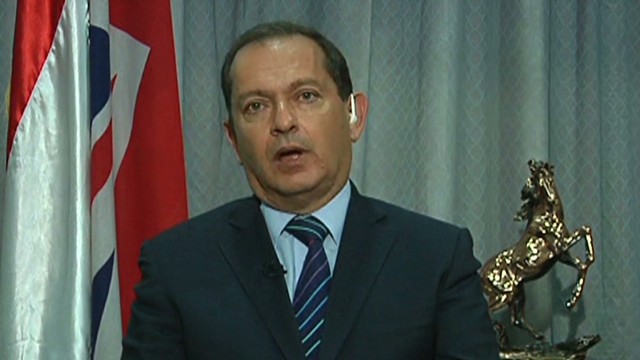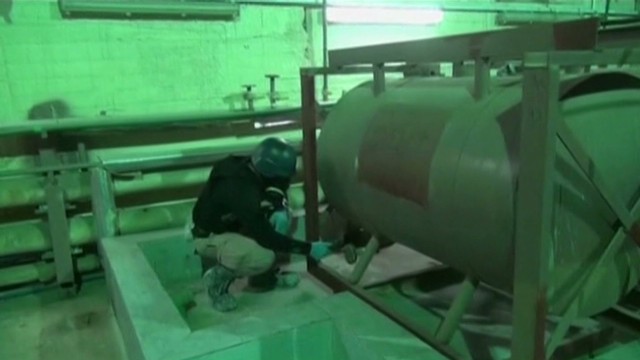Photos: Syrian civil war in 2014
Syrian civil war in 2014 – A wounded child walks at a makeshift hospital in the rebel-held town of Douma after being injured in a reported airstrike by government forces on Tuesday, December 23. Douma, located near Damascus, has been under government siege for more than a year, with residents facing dwindling food and medical supplies.The United Nations estimates nearly 200,000 people have been killed in Syria since an uprising in March 2011 spiraled into civil war.
Photos: Syrian civil war in 2014
Syrian civil war in 2014 – A Christmas tree and a cr├©che made out of rubble are set up on a square in the, predominantly Christian, government-held Hamidiyeh neighborhood of Homs on Monday, December 22.
Photos: Syrian civil war in 2014
Syrian civil war in 2014 – Syrian children await medical treatment at a makeshift clinic in the besieged rebel town of Douma, on Sunday, December 21, near Damascus.
Photos: Syrian civil war in 2014
Syrian civil war in 2014 – A Syrian rebel fighter keeps an eye on government troops in Aleppo, Syria, on Wednesday, December 17.
Photos: Syrian civil war in 2014
Syrian civil war in 2014 – A man drives his motorcycle through a puddle in Aleppo on Wednesday, November 26.
Photos: Syrian civil war in 2014
Syrian civil war in 2014 – A Syrian opposition fighter fires at Bashar al-Assad Regime forces in the Handarat district of Aleppo on Thursday, November 20.
Photos: Syrian civil war in 2014
Syrian civil war in 2014 – Syrian boys play in the ruins of a destroyed building in Aleppo on Tuesday, November 18.
Photos: Syrian civil war in 2014
Syrian civil war in 2014 – A wounded man is treated at a makeshift hospital in Damascus, Syria, following a reported air strike by government forces on Tuesday, November 11.
Photos: Syrian civil war in 2014
Syrian civil war in 2014 – Members of the Syrian Civil Defense carry an injured man after an alleged air strike in Aleppo on November 11.
Photos: Syrian civil war in 2014
Syrian civil war in 2014 – A member of the Syrian Civil Defense walks through a cloud of dust after an alleged air strike by government forces in Aleppo on November 11.
Photos: Syrian civil war in 2014
Syrian civil war in 2014 – A father cries over his son at a physical therapy center in Eastern al-Ghouta outside Damascus on Thursday, November 6. The boy had his leg tendons cut after he was injured in an airstrike four months before.
Photos: Syrian civil war in 2014
Syrian civil war in 2014 – A blindfolded man suspected of passing military information to the Syrian government waits to be interrogated by Free Syrian Army fighters Monday, October 6, in Aleppo.
Photos: Syrian civil war in 2014
Syrian civil war in 2014 – Medics at a field hospital in Douma, Syria, attend to a man who was injured in what activists said were two airstrikes carried out by forces loyal to Syrian President Bashar al-Assad on Saturday, September 20.
Photos: Syrian civil war in 2014
Syrian civil war in 2014 – Free Syrian Army fighters rest inside a damaged room in Aleppo on Tuesday, September 16, during what activists said were clashes with forces loyal to al-Assad.
Photos: Syrian civil war in 2014
Syrian civil war in 2014 – Syrian government forces walk down a street in Halfaya, Syria, after taking the city from rebel forces on Friday, September 12.
Photos: Syrian civil war in 2014
Photos: Syrian civil war in 2014
Syrian civil war in 2014 – Syrian opposition fighters take position behind sandbags in Aleppo on Thursday, September 11.
Photos: Syrian civil war in 2014
Syrian civil war in 2014 – Syrians fleeing the violence stand next to their belongings as they attempt to cross into Turkey on Sunday, September 7.
Photos: Syrian civil war in 2014
Syrian civil war in 2014 – A boy looks at bodies lying outside a hospital after a barrel-bomb attack in Aleppo on Friday, September 5.
Photos: Syrian civil war in 2014
Syrian civil war in 2014 – A U.N. convoy moves in the buffer zone near the Golan Heights as they are escorted by Syrian rebel fighters near the Syrian village of Jubata Al Khashab on Tuesday, September 2.
Photos: Syrian civil war in 2014
Syrian civil war in 2014 – Residents of Aleppo remove a body from debris on Friday, August 29, after what activists claim was shelling by forces loyal to al-Assad.
Photos: Syrian civil war in 2014
Syrian civil war in 2014 – Druze men watch from the Golan Heights side of the Quneitra border with Syria as smoke rises during fighting between rebels and forces loyal to al-Assad on Wednesday, August 27.
Photos: Syrian civil war in 2014
Syrian civil war in 2014 – This image was taken during a government guided tour in Mleiha, Syria, one day after Syrian government forces retook the town after a months-long battle with rebels, according to a military source and state television on Friday, August 15.
Photos: Syrian civil war in 2014
Syrian civil war in 2014 – Residents inspect the rubble of destroyed buildings in Aleppo after Syrian regime helicopters allegedly dropped barrel bombs there on Wednesday, August 13.
Photos: Syrian civil war in 2014
Syrian civil war in 2014 – Smoke trails over Aleppo following barrel bombs that were allegedly dropped by the Syrian regime on an opposition-controlled area on Monday, August 11.
Photos: Syrian civil war in 2014
Photos: Syrian civil war in 2014
Syrian civil war in 2014 – Syrian rebel fighters take up positions behind sandbags in Aleppo on Wednesday, July 30.
Photos: Syrian civil war in 2014
Syrian civil war in 2014 – People carry an injured man away from the site of an airstrike, reportedly carried out by Syrian government forces, in Aleppo on Sunday, July 27.
Photos: Syrian civil war in 2014
Photos: Syrian civil war in 2014
Syrian civil war in 2014 – Rebel fighters execute two men Friday, July 25, in Binnish, Syria. The men reportedly were charged by an Islamic religious court with detonating several car bombs.
Photos: Syrian civil war in 2014
Syrian civil war in 2014 – A rebel fighter stands on a dust-covered street in Aleppo on Monday, July 21.
Photos: Syrian civil war in 2014
Syrian civil war in 2014 – A man clears debris at the site of an alleged barrel-bomb attack in Aleppo on Tuesday, July 15.
Photos: Syrian civil war in 2014
Syrian civil war in 2014 – A woman walks amid debris after an airstrike by government forces July 15 in Aleppo.
Photos: Syrian civil war in 2014
Syrian civil war in 2014 – People walk on a dust-filled street after a reported barrel-bomb attack in Aleppo on Monday, July 7.
Photos: Syrian civil war in 2014
Photos: Syrian civil war in 2014
Syrian civil war in 2014 – A man carries a girl injured in a reported barrel-bomb attack by government forces June 3 in Aleppo.
Photos: Syrian civil war in 2014
Syrian civil war in 2014 – A rebel fighter loads an anti-tank cannon outside Latakia, Syria, on Sunday, June 1.
Photos: Syrian civil war in 2014
Syrian civil war in 2014 – A rescue worker pulls a girl from rubble in Aleppo on June 1 after reported bombing by government forces.
Photos: Syrian civil war in 2014
Syrian civil war in 2014 – A giant poster of Syrian President Bashar al-Assad is seen in Damascus, Syria, on Saturday, May 31, as the capital prepares for presidential elections.
Photos: Syrian civil war in 2014
Syrian civil war in 2014 – Portraits of al-Assad dominate the cityscape in central Damascus on Tuesday, May 27. Al-Assad is firmly in power three years into the civil war, while the opposition remains weak and fragmented and extremists grow in numbers and influence.
Photos: Syrian civil war in 2014
Syrian civil war in 2014 – The father of a 3-month-old girl weeps Monday, May 26, after she was pulled from rubble following a barrel-bomb strike in Aleppo.
Photos: Syrian civil war in 2014
Syrian civil war in 2014 – A woman stands in a heavily damaged building in Aleppo on May 26.
Photos: Syrian civil war in 2014
Syrian civil war in 2014 – An injured man lies in a hospital bed after alleged airstrikes by government forces in Aleppo on Sunday, May 18.
Photos: Syrian civil war in 2014
Syrian civil war in 2014 – Buildings in Homs, Syria, lie in ruins Saturday, May 10, days after an evacuation truce went into effect. Thousands of displaced residents returned to the city.
Photos: Syrian civil war in 2014
Syrian civil war in 2014 – Rescuers carry a man wounded by a mine in the Bustan al-Diwan neighborhood of Homs on May 10.
Photos: Syrian civil war in 2014
Syrian civil war in 2014 – A Syrian woman carries a suitcase along a street in the Juret al-Shayah district of Homs on May 10.
Photos: Syrian civil war in 2014
Syrian civil war in 2014 – Residents carry their belongings in the al-Hamidieh neighborhood of Homs on May 10.
Photos: Syrian civil war in 2014
Syrian civil war in 2014 – A woman injured when a mine went off is carried in Homs on May 10.
Photos: Syrian civil war in 2014
Syrian civil war in 2014 – Residents return to damaged dwellings in Homs on May 10.
Photos: Syrian civil war in 2014
Syrian civil war in 2014 – Debris lies on a deserted street in Homs on Thursday, May 8.
Photos: Syrian civil war in 2014
Syrian civil war in 2014 – A mosque is seen through shattered glass in Homs, where an evacuation truce went into effect on Wednesday, May 7.
Photos: Syrian civil war in 2014
Syrian civil war in 2014 – A wounded man is treated at a makeshift hospital in Aleppo on Sunday, May 4.
Photos: Syrian civil war in 2014
Syrian civil war in 2014 – Debris rises in what Free Syrian Army fighters said was an operation to strike a checkpoint and remove government forces in Maarat al-Numan, Syria, on Monday, May 5.
Photos: Syrian civil war in 2014
Syrian civil war in 2014 – A man helps a woman through debris after reported airstrikes by government forces on Thursday, May 1, in the Halak neighborhood of Aleppo.
Photos: Syrian civil war in 2014
Syrian civil war in 2014 – Syrians gather at the site of reported airstrikes in Aleppo on May 1. According to the Syrian Observatory for Human Rights, at least 33 civilians were killed in the attack.
Photos: Syrian civil war in 2014
Syrian civil war in 2014 – A woman runs after two barrel bombs were thrown, reportedly by forces loyal to Syrian President Bashar al-Assad in Aleppo on May 1.
Photos: Syrian civil war in 2014
Syrian civil war in 2014 – A boy runs in Aleppo on Sunday, April 27, after what activists said were explosive barrels thrown by forces loyal to al-Assad.
Photos: Syrian civil war in 2014
Syrian civil war in 2014 – Security and emergency medical personnel work at the site of a car bomb explosion Monday, April 14, in the Ekremah neighborhood of Homs.
Photos: Syrian civil war in 2014
Syrian civil war in 2014 – In this photo released by the state-run SANA news agency, Syrian forces take positions during clashes with rebels near the town of Rankous, Syria, on Sunday, April 13.
Photos: Syrian civil war in 2014
Syrian civil war in 2014 – Flames engulf a vehicle following a car bomb Wednesday, April 9, in the Karm al-Loz neighborhood of Homs.
Photos: Syrian civil war in 2014
Syrian civil war in 2014 – A man carries a child who was found in the rubble of an Aleppo building after it was reportedly bombed by government forces on Monday, March 18.
Photos: Syrian civil war in 2014
Syrian civil war in 2014 – An elderly man and a child walk among debris in a residential block of Aleppo on March 18.
Photos: Syrian civil war in 2014
Syrian civil war in 2014 – A woman with blood on her face carries a child following a reported airstrike by government forces Saturday, March 15, in Aleppo.
Photos: Syrian civil war in 2014
Syrian civil war in 2014 – People attempt to comfort a man in Aleppo after a reported airstrike by government forces on Sunday, March 9.
Photos: Syrian civil war in 2014
Syrian civil war in 2014 – Buildings in Homs lay in ruins on March 9.
Photos: Syrian civil war in 2014
Syrian civil war in 2014 – Syrian forces fire a cannon and a heavy machine gun loaded on a truck as they fight rebels in the Syrian town of Zara on Saturday, March 8.
Photos: Syrian civil war in 2014
Syrian civil war in 2014 – A handout photo released by SANA shows Syrian President Bashar al-Assad speaking March 8 during a meeting in Damascus to mark the 51st anniversary of the 1963 revolution, when Baath Party supporters in the Syrian army seized power. Al-Assad said the country will go on with reconciliation efforts along with its fight against terrorism.
Photos: Syrian civil war in 2014
Syrian civil war in 2014 – Syrians inspect the rubble of destroyed buildings in Aleppo following a reported airstrike by Syrian government forces on Friday, March 7.
Photos: Syrian civil war in 2014
Syrian civil war in 2014 – People dig through the rubble of a building in Damascus that was allegedly hit by government airstrikes on Thursday, February 27.
Photos: Syrian civil war in 2014
Syrian civil war in 2014 – A boy walks ahead of men carrying the body of his mother in Aleppo on Saturday, February 22. According to activists, the woman was killed when explosive barrels were thrown by forces loyal to al-Assad.
Photos: Syrian civil war in 2014
Syrian civil war in 2014 – A man holds a baby who survived what activists say was an airstrike by al-Assad loyalists Friday, February 14, in Aleppo.
Photos: Syrian civil war in 2014
Syrian civil war in 2014 – In this photo provided by the anti-government activist group Aleppo Media Center, Syrian men help survivors out of a building in Aleppo after it was bombed, allegedly by a Syrian regime warplane on Saturday, February 8.
Photos: Syrian civil war in 2014
Syrian civil war in 2014 – Syrians gather at a site hit by barrel bombs, allegedly dropped by a regime helicopter on the opposition-controlled Mesekin Hananu district of Aleppo on February 8.
Photos: Syrian civil war in 2014
Syrian civil war in 2014 – In this handout photo released by the state-run SANA news agency on February 8, civilians wave national flags in Damascus as they take part in a rally in support of President al-Assad.
Photos: Syrian civil war in 2014
Syrian civil war in 2014 – A man stands next to debris in the road following a reported airstrike by Syrian government forces in Aleppo on February 8.
Photos: Syrian civil war in 2014
Syrian civil war in 2014 – Medical personnel look for survivors after a reported airstrike in Aleppo on Saturday, February 1.
Photos: Syrian civil war in 2014
Syrian civil war in 2014 – Syrians carry a dead body following an airstrike on February 1.
Photos: Syrian civil war in 2014
Syrian civil war in 2014 – A man walks amid debris and dust on January 31.
Photos: Syrian civil war in 2014
Syrian civil war in 2014 – An injured man is covered in dust after an airstrike on January 29.
Photos: Syrian civil war in 2014
Syrian civil war in 2014 – A man tries to fix electrical wires in Aleppo on January 27.
Photos: Syrian civil war in 2014
Syrian civil war in 2014 – Rebels and civilians check out a crater that activists say resulted from a Syrian government airstrike on an Aleppo bus station on Tuesday, January 21.
Photos: Syrian civil war in 2014
Syrian civil war in 2014 – Men rush to a site that Syrian government forces reportedly hit in Aleppo on January 21.
Photos: Syrian civil war in 2014
Syrian civil war in 2014 – Buildings lie in ruins in Aleppo on Sunday, January 19, after reported air raids by Syrian government planes.
Photos: Syrian civil war in 2014
Syrian civil war in 2014 – A child collects items from a garbage pile in Douma, northeast of the capital, on Saturday, January 18.
Photos: Syrian civil war in 2014
Syrian civil war in 2014 – A piece of exploded mortar lies in a street in Daraya, a Syrian city southwest of Damascus, on Friday, January 17.


























